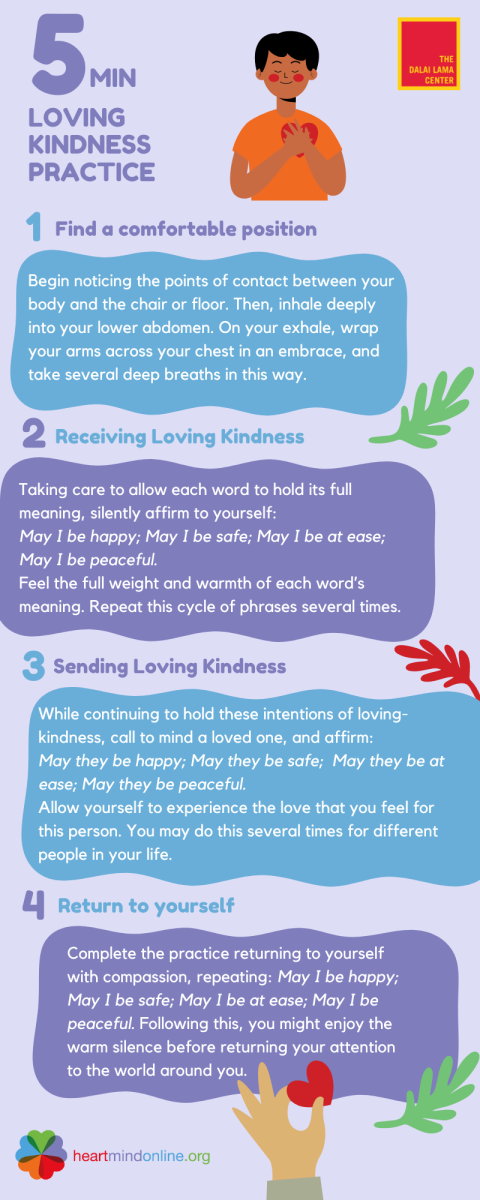Practicing Learned Optimism for Increased Resilience & Well-Being
If the past few years have felt overwhelming and stressful, remaining hopeful and optimistic may be difficult. If this sounds familiar, you are not alone. Recent studies have found that media overload is causing stress in today’s increasingly saturated news landscape. Yet optimism can lead to better health outcomes and increased well-being.
 Learned Optimism, as coined by Martin Seligman, is about changing behaviours through awareness of your own thought processes. It views optimism as a conscious choice that we make, a practice of optimism that differs from the ‘glass-half full’ perspective most of us think about.
Learned Optimism, as coined by Martin Seligman, is about changing behaviours through awareness of your own thought processes. It views optimism as a conscious choice that we make, a practice of optimism that differs from the ‘glass-half full’ perspective most of us think about.
Optimism is about reflecting positively on situations, as well as seeing the bright side of things. Key to building resilience, optimism helps us depersonalize disappointing events and move past them. It's not about ignoring problems or ‘faking it’ - it’s consciously choosing to focus on the good in a situation and on how to move forward and improve. Optimism asks us to be kind to ourselves even when things don’t go according to plan.
Carver et al (2010) found that the health benefits of optimism are actually due to pragmatism and persistence - optimists get things done, remain active and immerse themselves in life. This includes practical things like getting check-ups and exercising regularly, which contribute to physical health.
7 ideas to help turn stress and dread into optimistic reflection and action:
 1. Think about how you consume news media - It’s good to be informed, but it becomes overwhelming if we are ‘always on’. Perhaps consider turning off real-time news alerts on your devices. Check in with how your body is feeling when you check the news - do you feel tense? Is there a rise in your pulse rate? If so, you may need to limit your exposure.
1. Think about how you consume news media - It’s good to be informed, but it becomes overwhelming if we are ‘always on’. Perhaps consider turning off real-time news alerts on your devices. Check in with how your body is feeling when you check the news - do you feel tense? Is there a rise in your pulse rate? If so, you may need to limit your exposure.
 2. Reframe - Not just ongoing events but also things that have already happened to us. How do you talk about your day? What parts are you focussing on? Think of one thing that happened today that you would like to be different, and A) try to think of any positives that came out of the situation and B) how you can use what you learned to handle situations like this in the future. Author and Danish parenting expert Jessica Joelle Alexander advises that the language we use can help us to reframe our thought processes, because the way we talk about things affects the way we feel. For example, instead of using black and white statements such as ‘I hate flying’, we can change the thought to ‘I really like travelling, once I get off the plane’.
2. Reframe - Not just ongoing events but also things that have already happened to us. How do you talk about your day? What parts are you focussing on? Think of one thing that happened today that you would like to be different, and A) try to think of any positives that came out of the situation and B) how you can use what you learned to handle situations like this in the future. Author and Danish parenting expert Jessica Joelle Alexander advises that the language we use can help us to reframe our thought processes, because the way we talk about things affects the way we feel. For example, instead of using black and white statements such as ‘I hate flying’, we can change the thought to ‘I really like travelling, once I get off the plane’.
 3. Get involved in your community - Do something meaningful that makes a real difference. This could be anything from offering a helping hand to a neighbour to volunteering for your local food bank. A recent study of over 70,000 research participants found that volunteering and giving back to our community increases people's happiness over time. Dedicating some time to improving conditions for the people around us reminds us that we can make a positive difference on a tangible scale. If we brighten even just one person’s day, it can lift our spirits too!
3. Get involved in your community - Do something meaningful that makes a real difference. This could be anything from offering a helping hand to a neighbour to volunteering for your local food bank. A recent study of over 70,000 research participants found that volunteering and giving back to our community increases people's happiness over time. Dedicating some time to improving conditions for the people around us reminds us that we can make a positive difference on a tangible scale. If we brighten even just one person’s day, it can lift our spirits too!
 4. Tap into your inner optimist! - At the end of each day, take some time to ask yourself a couple of specific questions to help you recognize the positives - for example ‘what put a smile on your face today?’ or ‘what is one thing you did today that made you feel proud of yourself’. Even better; do this with a loved one and listen to each other's positive shares. Check out our previous Heart-Mind resource to discover how sharing good news helps strengthen our relationships.
4. Tap into your inner optimist! - At the end of each day, take some time to ask yourself a couple of specific questions to help you recognize the positives - for example ‘what put a smile on your face today?’ or ‘what is one thing you did today that made you feel proud of yourself’. Even better; do this with a loved one and listen to each other's positive shares. Check out our previous Heart-Mind resource to discover how sharing good news helps strengthen our relationships.
 5. Give yourself something to look forward to - Feeling anticipation and excitement is energizing! Make realistic plans to do something that will bring you joy and fulfilment. It could be taking a trip, reaching out to an old friend, trying a new hobby or activity, or finally cooking that recipe you’ve been wanting to try. It doesn't have to be something big or expensive - if you're stuck for ideas check out this article from Psychology Today for some inspiration.
5. Give yourself something to look forward to - Feeling anticipation and excitement is energizing! Make realistic plans to do something that will bring you joy and fulfilment. It could be taking a trip, reaching out to an old friend, trying a new hobby or activity, or finally cooking that recipe you’ve been wanting to try. It doesn't have to be something big or expensive - if you're stuck for ideas check out this article from Psychology Today for some inspiration.

6. See situations and circumstances as changeable - Think about how far we’ve come in our beliefs around, for example, gender equality or climate change - while nothing is perfect, there is always potential for improvement. Sometimes we are bombarded with negative messaging; so if you need a reminder about how conditions have improved over time, take a look at this report from the World Economic Forum. On a personal level, think about any small changes you can make to create more positivity. (hint: trying something from these tips counts!)
 7. Try a Loving Kindness Practice for self-compassion and compassion for others - Studies show that people who experience or express positive emotions show increases in optimism over time. Practicing self-compassion releases depression-fighting brain chemicals such as oxytocin. Combining this practice with a soothing touch also reduces cortisol and calms cardiovascular stress. It may feel silly at first, but try using a caring touch to create a physical container for your feelings through "self-holding". This can be as simple as placing a hand on your chest, or wrapping your arms around yourself. Strengthen feelings of kindness and connection in just 5 minutes, with this quick Loving Kindness Practice, adapted from our blog post:
7. Try a Loving Kindness Practice for self-compassion and compassion for others - Studies show that people who experience or express positive emotions show increases in optimism over time. Practicing self-compassion releases depression-fighting brain chemicals such as oxytocin. Combining this practice with a soothing touch also reduces cortisol and calms cardiovascular stress. It may feel silly at first, but try using a caring touch to create a physical container for your feelings through "self-holding". This can be as simple as placing a hand on your chest, or wrapping your arms around yourself. Strengthen feelings of kindness and connection in just 5 minutes, with this quick Loving Kindness Practice, adapted from our blog post:

Download Loving Kindness infographic here.